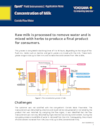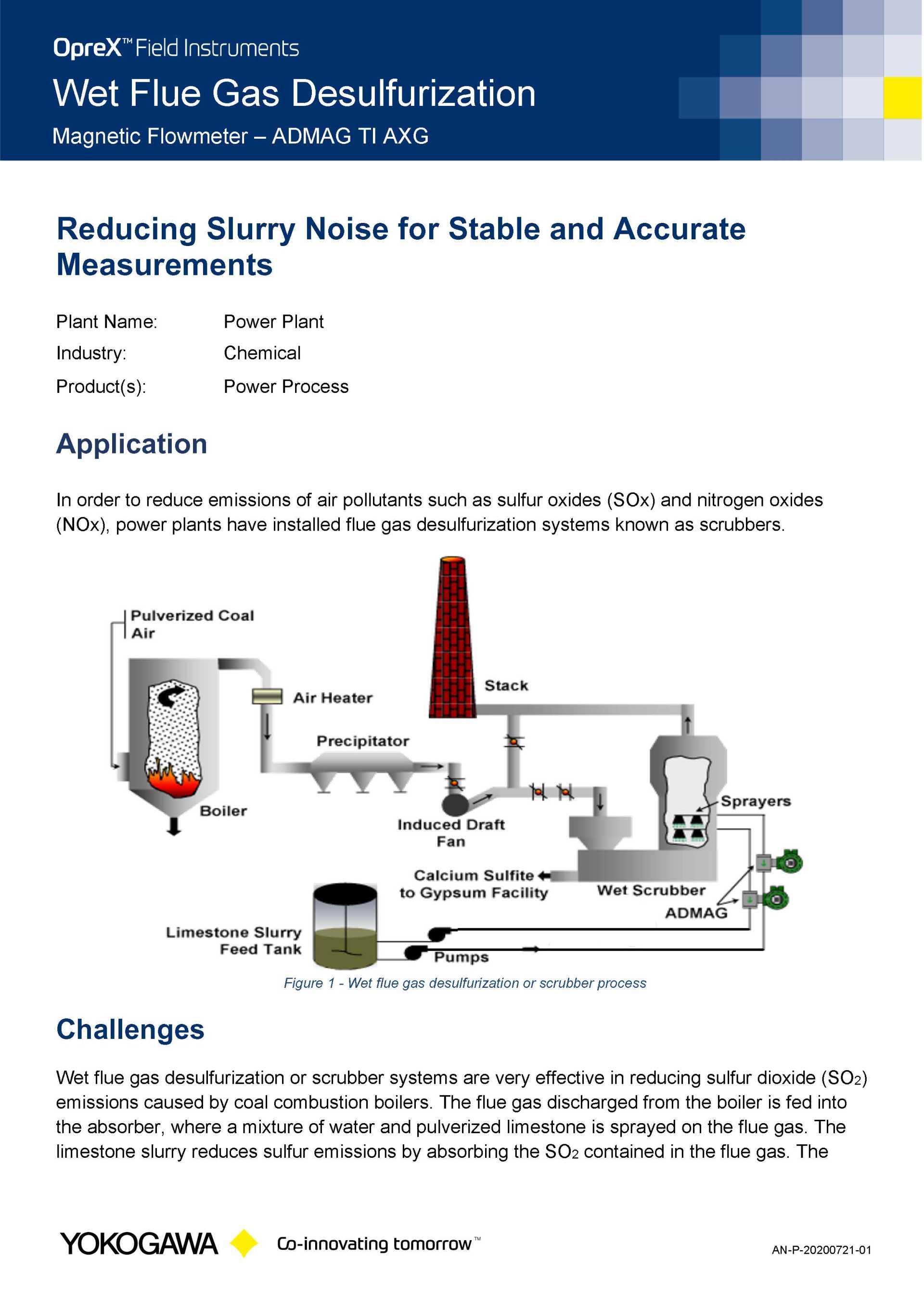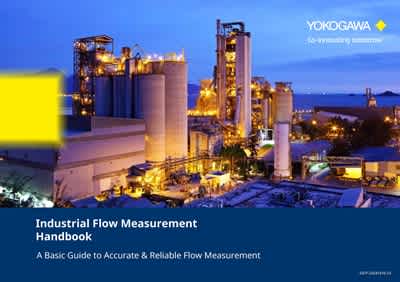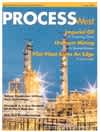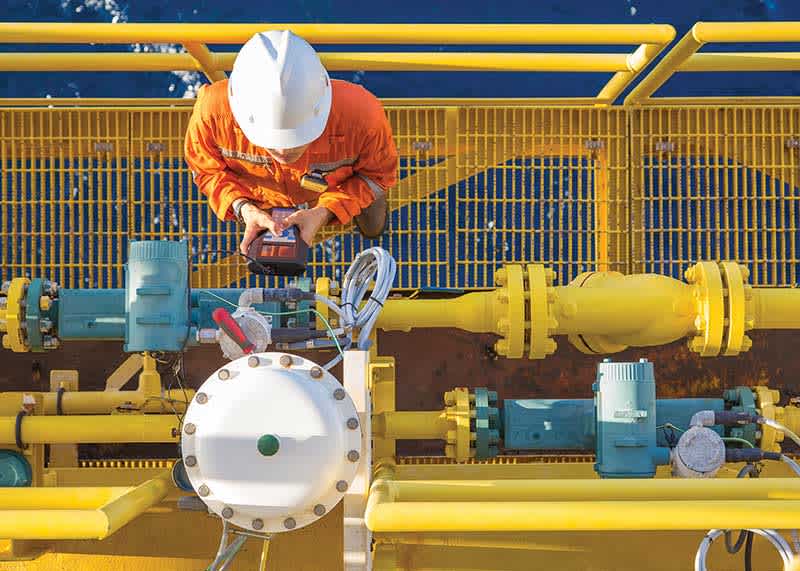What Are Magnetic Flow Meters?
Magnetic flow meters, also known as magmeters, are widely used in a variety of industrial field applications due to their reliable flow rate measurements and features such as low-pressure loss and maintenance-free operation.
Yokogawa’s ADMAG series magnetic flow meters are designed with dual-frequency excitation to achieve stable measurement, zero stability, and quick response times.
Learn more about how magnetic flow meters work and the technology behind Yokogawa's ADMAG flow meters.
-
ADMAG AXG
Magnetic flowmeters for oil & gas, chemical, pulp & paper, food & beverage, and metal & mining applications
-
ADMAG AXW
Magnetic flowmeters for water supply/sewage applications and general industrial applications
-
Magnetic Flowmeter CA Series
Magnetic flowmeters for slurry fluids and adhesive fluids
Details
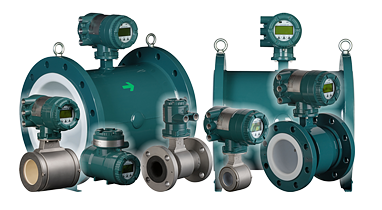 ADMAG Total Insight Electromagnetic Flow Meters
ADMAG Total Insight Electromagnetic Flow Meters
Total Insight is a Yokogawa concept for optimizing operations and reducing maintenance costs through every phase of the product lifecycle. The ADMAG TI magnetic flow measurement series consists of the ADMAG AXG and the ADMAG AXW electromagnetic flow meters. For industries such as pulp & paper and more, ADMAG TI series magnetic flow meters have digesters that are reinforced and protections to resist wear and deformation and extend service life, even under harsh high-pressure and high-temperature conditions. The ADMAG AXG is a complete redesign of the ADMAG AXF and will accommodate bore diameters from 2.5 mm up to 500 mm, while the revamped ADMAG AXW will accommodate bore diameters ranging from 25 mm to 1800 mm.
What Are the Benefits of Magnetic Flow Meters?
All Yokogawa magnetic flow meters are engineered with dual-frequency excitation, an innovative method that superimposes high frequencies on low frequencies, providing the best of AC and pulsed DC excitation. This technology ensures excellent flow noise immunity, fast response times, and excellent stability by utilizing the low-frequency spectrum while maintaining high accuracy and high zero stability.
How Does a Magnetic Flow Meter Work?
Magnetic Flow Meter Principle: Faraday's Law

Flow Measurement
Magnetic flow meters consist of a detector and a converter, with the principle of the detector adopting Faraday's electromagnetic induction law. Faraday's Law states that if conductive fluid flows in a magnetic field, an electromagnetic force is generated in proportion to the fluid's flow velocity. Generally, the inner walls of a detector's measurement tube (metal pipe made of SUS, etc.) are lined with a relatively thick insulating layer to prevent the shorting of the generated electromotive force. This insulating layer is referred to as "lining." There are many kinds of lining materials available that provide corrosion and abrasion resistance to the fluids being measured.
Resources
- To bring the customer a real-time monitoring and management capability, Yokogawa installed STARDOM (FCJ), flow meters, and transmitters at key points throughout the distribution network.
- The STARDOM FCJ controllers achieved an accurate water loss management system while keeping the running costs to a minimum.
Water Supply Treatment
FAST/TOOLS, STARDOM, Flowmeters, Liquid Analyzers
- Bali's water treatment plant decided to employ the latest reliable control system in order to increase availability and quality of operation.
- Centralized control system using FAST/TOOLS provides the sophisticated and flexible operation.
ADMAG AXG Magnetic Flowmeter Helps to Optimize Production Throughput and Reduce Energy Consumption in Chlor-Alkali Plant
Challenge: The customer's existing measurement device was disturbed by vibration and could not be compensated or corrected by the product that was installed.
Boosting efficiency in Chlor-Alkali Plants with the ADMAG Magnetic Flowmeter provides accurate, stable flow measurement for Brine and Caustic in Chlor-Alkali electrolyzer cells, improving production efficiency and reducing energy consumption.
Yokogawa’s latest generation of ADMAG AXG Series is the most suitable magnetic flowmeter with adhesion level diagnosis and dual-frequency excitation method provides stable flow measurement even under high flow noise in the severe applications like the flow of aluminum slurries.
Angel Yeast Co., Ltd. is a leading global player in the yeast and deep-processed products industry, with production bases in 13 cities worldwide. Their yeast series products account for over 17% of the global market, ranking second globally.
In their production process, additives like nitrogen, phosphorus, and potassium are crucial, requiring accurate measurement and stabilization to ensure the final product meets specifications. Yokogawa proposed the AXG electromagnetic flowmeter as a solution, providing dual-frequency excitation for both rapid response and reduced noise.
Questionable flow and conductivity measurements during CIP could raise questions about food quality and safety.
Yokogawa's ceramic liner can offer the customer superior resistance to thermal shock and the failure that can occur due to liner cracking. This is due to Yokogawa's use of 99.9% pure Al2O3 for the liner.
In order to reduce emissions of air pollutants such as sulfur oxides (SOx) and nitrogen oxides (NOx), power plants have installed flue gas desulfurization systems known as scrubbers.
Using recycled oil as an energy source poses a challenge due to its inconsistent composition and potential impurities. Conventional flowmeter technologies are impractical in such cases. The CA Series, however, reliably and stably measures the flow of recycled oil mixed with water.
A Basic Guide to Accurate & Reliable Flow Measurement.
After having undergone several improvements, magnetic flow meters have become highly accurate and reliable and are widely used in the industrial instrument field today. Magnetic flow meters consist of a detector and a converter, with the principle of the detector adopting Faraday's electromagnetic induction law.
Recent or pending air pollution legislation to reduce the amount of air pollutants is increasing worldwide. In the U.S., The Clean Air Act address numerous air quality problems. One of these problems is acid rain (much of which falls in Canada) caused by sulfur dioxide and nitrogen oxide emissions from fossil-fueled power plants and other industrial and transportation sources.
View Efficient Plant Article
Downloads
Brochures
- CA Series – Measuring the Impossible When Nothing Else Will Work (330 KB)
- Yokogawa in the Water Industry in North America (1.8 MB)
- Yokogawa in the Food and Beverage Industry (5.9 MB)
- Electrolysis Solutions: Instrumentation Solutions for Electrolysis Plant Applications (841 KB)
- Brochure: Five Mistakes When Selecting a Flowmeter
Videos
In the digester process, high temperature and pressure, along with the slurry pulp, can cause extreme damage to traditional meters.
Our experts review the theory behind flow measurement technologies. Discuss common flow application challenges and evaluate the different technologies when selecting a flow meter. They also give examples of best installation practices for successful measurements.
What about other instrumentation pain-points in the blow tank, washing, or bleaching process?
Looking for more information on our people, technology and solutions?
Contact Us


